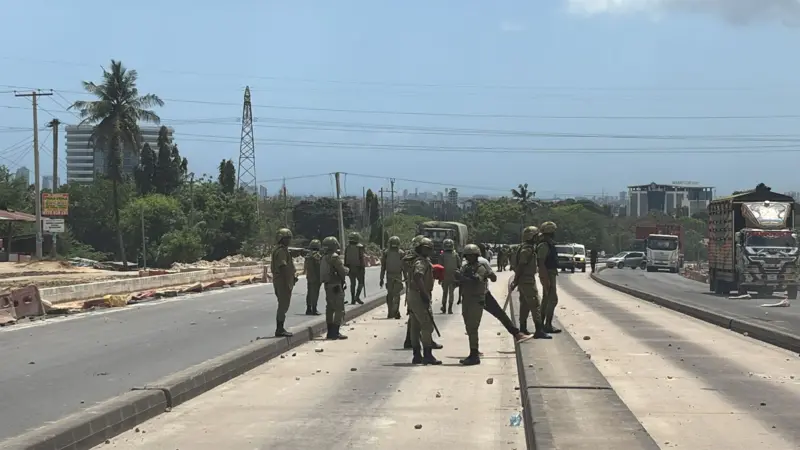Dar es Salaam, Tanzania – Police in Tanzania’s commercial capital fired gunshots and tear gas to disperse protesters who took to the streets a day after a general election. The protests, which spread to several cities, were sparked by the exclusion of President Samia Suluhu Hassan’s two main challengers from the presidential race and allegations of increasing repression of government critics.

The demonstrations turned violent, prompting police to impose a nighttime curfew in Dar es Salaam, a city of over seven million people. Internet access was disrupted across the country, making it difficult for people to access information and communicate with each other.
According to reports, at least five people were killed in Wednesday’s protests, with a diplomatic source claiming that the death toll in Dar es Salaam alone could be as high as 10. However, Reuters was unable to independently verify these reports, and government and police spokespeople did not respond to requests for comment.
Despite the unrest, the state-run Tanzania Broadcasting Corporation began airing provisional presidential election results, which showed President Hassan winning commanding majorities in various constituencies. The results are not surprising, given the exclusion of key opposition candidates from the race.
The international community has taken note of the situation, with Britain’s Foreign, Commonwealth & Development Office announcing the cancellation of some international flights to and from Dar es Salaam’s airport. The airports in Arusha and near Mount Kilimanjaro were also closed.
Tanzanian human rights activist Tito Magoti described the protests as a significant shift in the country’s political culture. “The people are rewriting our political culture from being cows, if I use this word respectfully… to being active citizens,” he said. “That was the perception long ago, that Tanzanians are peaceful and… not confrontational.”
The unrest presents a major test for President Samia Suluhu, who came to power in 2021 promising to ease repression of political opponents and censorship. However, rights campaigners and opposition candidates have accused her government of unexplained abductions of critics. While Suluhu said last year she had ordered an investigation into reports of abductions, no official findings have been made public.
As the situation unfolds, the international community will be watching closely to see how the government responds to the protests and the demands of its citizens. The outcome of the election and the government’s response to the unrest will have far-reaching implications for Tanzania’s democracy and stability.





